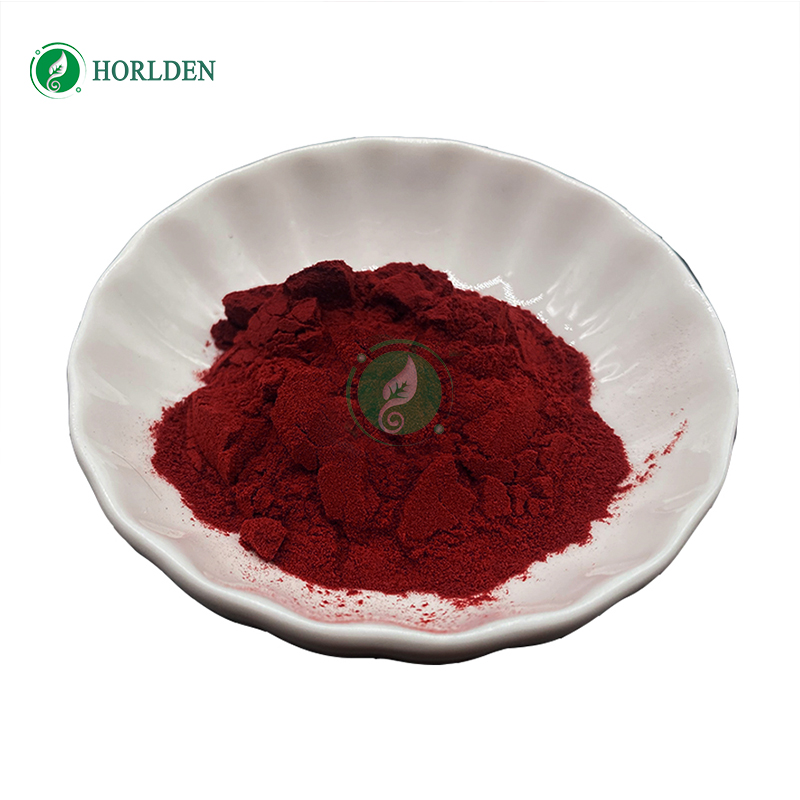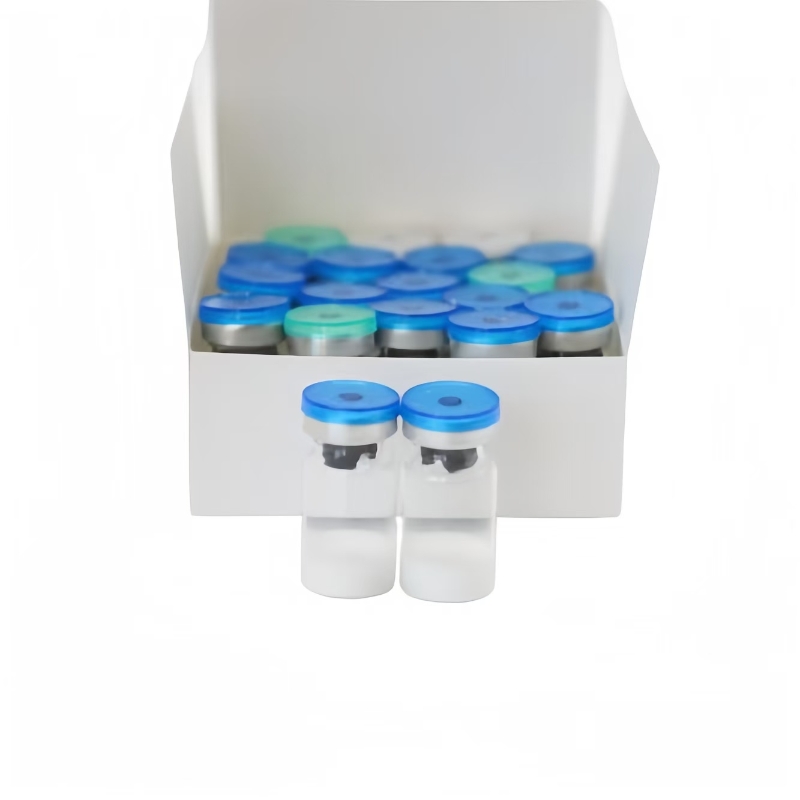What are the surprises of upgrading the 3rd generation of the ALK Inhibitor Family after 10 years?
-
Last Update: 2020-06-16
-
Source: Internet
-
Author: User
Search more information of high quality chemicals, good prices and reliable suppliers, visit
www.echemi.com
Guide: Lung cancer, regardless of morbidity or mortality, is the first cancer at home and abroad; Transgender lymphoma kinases, or ALK fusion gene-positive; ALK inhibitors have been on the market for 10 years and upgraded for three generations; so, what support does these three generations of ALK-TKIs provide for human treatment in these 10 years? What will the future look like? What is the momentum of imitation innovation at home and abroad? See this articleAuthor: Drug mad lung cancer, regardless of morbidity or mortality, is the first cancer at home and abroad; Transgender lymphoma kinases, or ALK fusion gene-positive; ALK inhibitors have been on the market for 10 years and upgraded for three generations; so, what support does these three generations of ALK-TKIs provide for human treatment in these 10 years? What will the future look like? What is the momentum of imitation innovation at home and abroad? See this articleAlK Fusion Positive - Inhibitor Discovery Process 1994 found that the ALK fusion gene present in interdegeneration large cell lymphoma has carcinogenic properties; In 2006, alK's first listed drug, coctinib, conducted a Phase I clinical trial, and in 2011 the FDA accelerated the approval of the treatment of cratinib for ALK fusion-positive NSCLCFigure 1.1: ALK and its first inhibitor development timeline (Image: NATUREREVIEWS CLINICALONCOLOGY PS: The EML4-ALK fusion gene has strong carcinogenic activity, its activity mainly depends on EML4-ALK activation of tyrosine kinase, so as to activate the downstream JAK/STAT, PI3K/mTOR and MAPK and other pathways to make cell proliferation and apoptosis out of controlFigure 1.2: ALK Fusion Positive -Activated Downstream Signals (Photo: NATUREREVIEWS CANCERVOLUME13 OCTOBER2013) First generation ALK-TKI listed varieties and their drug resistance problems first generation ALK-TKI (crzotinib), the first ALK kinase inhibitor, developed by Pfizer, for alK, c-METROS and -1 fusion Protein inhibition has been approved for the treatment of ALK-positive local late-stage or metastatic NSCLC in the United States (August 2011), China (January 2013), Japan (March 2012), europe (October 2012) and other countries and regionsFigure 2.1: The results of the PROFILE1007 clinical trial in The uk -III (Photo: Annalsof Oncology27:2016) have generated sales of between $500 million and $600 million for the past five years, and have been on the market for 10 years, but have not yet grown into a traditional "heavy bomb drug"PS: The domestic drug market, grameani has been reduced from 5w yuan/ bottle, to nearly 1.5w yuan/ bottleDomestic registration declaration for the species, in addition to Pfizer original research varieties approved, the domestic only zhengda Qing a registration declaration imitationThe drug resistance of cratinib is currently less research on primary drug resistance of creditinib, the general definition of the progress of the drug within 3 months of the patient is considered primary drug resistance, and secondary drug resistance mutation accounts for about 37% of the problem of keratosin resistance, mainly including alK kinase region mutation and the amplification of alK gene copy number, that is, the so-called ALK pathway dominant drug resistanceThe drug resistance mechanism of mutation in the ALK kinase region is more clear, and the mutation types include: G1269A, F1174L, L1152R, S1206Y, I152Tins, P1203N, V1180L, C1156Y, F1164V, G1202R, G1269S, L1196M, of which G1269A and L1196M are the most commonAfter the drug resistance problem, the development strategy of the second and third generation of drugs, the current second generation ALK-TKI listed drugs colored retinib, Alatinib, bugtinib, Lauratini; Problems such as G1202R and F1174L are the most common drug-resistant mutations in Ceritinib; I1171 and V1180L are common mutations in Alectinib; L1198F is l1198F is llatinorib drug-resistant mutation, and so onFigure 3.1: Drug resistance and sensitive mutation points for 5 ALK inhibitors (S-sensitive; R-drug resistance; U-uncertain) Seritinib (second generation) ceritinib, developed by Novartis, at a price of gramery 20 times ni, clinically used in the treatment of alK-positive metastatic NSCLC patients whose condition worsened after treatment with keratosin, or intolerance to credite, and has been approved for first-line treatment of ALK-positive patients with advanced NSCLCThe results of its ALK-positive cell line model show that Seritinib can effectively suppress alK mutations associated with acquired drug resistance, including L1196M, G1269A, I1171T and S1206Y, but are ineffective with G1202R and F1174C mutationsPS: Seritinib can benefit from treatment in patients with brain metastasis through the blood-brain barrierThe variety has been approved by the FDA (April 2014), EMA (May 2015), PMDA (March 2016), and NMPA (June 2018)In terms of global sales, the species, which had global sales of $100 million in the three years before its launch, was not a "replacement" for the drug marketDomestic registration declaration, Zhengda Tianqing still on the field of varieties for development declaration, in addition to Jichuan Pharmaceutical, Nanjing Warwick, Shanxi Zhendong, Beijing KangLisheng, Jiangsu Osaikang, Jiangsu Wanbang, Shi medicine Zhongqi and other domestic pharmaceutical companies to the variety of imitation declaration; Alectinib, developed by Japan's Sino-foreign Pharmaceutical Co., Ltd (Roche's) to suppress most of the acquired drug resistance mutations of Kryptinib, including G1269A, L1196M, C1156Y, L1152R, F174L, etc The variety has been approved for listing by PMDA (July 2014), FDA (December 2015), EMA (February 2017), and NMPA (August 2018) In terms of global sales, sales have been on the rise overall for the past 5 years, with global sales of nearly $900 million in 2019, and are about to grow into heavy-duty drugs, the best of all listed ALK inhibitor families! Domestic registration declaration of this species, in addition to roche original research varieties approved, the domestic pharmaceutical companies have not yet registered the species declaration Bugtinib (second generation) brigatinib, developed by Ariad (a subsidiary of Takeda), alK and EGFR dual-target inhibitors, can be through the blood-brain barrier, the drug-resistant mutations L1196M, F174C, S1206R, E1210K, F1245C and other anti-tumor activity In April 2017, the FDA approved bugtinib for use in the second-line treatment of ALK-NSCLC, and in addition to the FDA, the EMA (November 2018) approved the listing of the species Global sales, since the listing, annual sales of $100 million Domestic registration declaration of this species, Takeda with 2.4 class registration declaration IND, has not been approved; Lorlatinib, developed by Pfizer as a third-generation oral ATP competitive small molecule ALK and ROS1 dual-target inhibitors for the treatment of recurrent non-small cell lung cancer that CANnot be removed positive for ALK fusion genes; The potential advantage of Lorlatinib is that it has higher permeability of the blood-brain barrier and better treatment of TKI-resistant ALK mutations, including Crizotinib, Alectinib, and Ceritinib drug-resistant EML4-ALK mutation types (e.g G1202R mutations) In terms of global sales, the time to market is relatively short and there is no statistical reference Domestic registration of the species, Pfizer has applied for import in 2017, has not yet approved the listing; Schedule 1: The domestic NDA variety of ALK inhibitors in the global development process - Nsatinininsatinsatini (Bemena ®), is a new, powerful, highly selective new generation of ALK inhibitors jointly developed by Beida Pharmaceuticals and its controlling subsidiary Xcovery Holding, Inc with fullindependent proprietary intellectual property rights, and is the first major distribution product for Beida Pharmaceuticals to be launched globally after EGFR-TKI in the field of lung cancer In December 2018, nsatinib hydrochloride submitted an application for new drug marketing (NDA); Figure 4.1: Beida's official website - Ensatinib's action mechanism (Photo source: Beida Pharmaceuticals) Enshatini has a strong binding force with ALK, and the domestic phase II registered clinical study has been conducted to assess the efficacy, safety and biomarker analysis of alK mutation-positive non-small cell lung cancer patients with Ensatinib treatment after the failure of treatment of cratinib, with a total of 160 patients enrolled in the group As of mid-September 2018, the results of the independent review committee's assessment showed an objective remission rate of 52% orR, disease control rate (DCR) of 93%, intracranial ORR and DCR at 70% and 98%, respectively, and overall efficacy reached the expected target Summary at present, NSCLC-ALK-TKI has successfully developed three generations, the market performance relative to parallel rival EGFR-TKI is much inferior, but the valuable is that the pharmaceutical company has not given up on this part of the patient, and four generations of drugs have been developed on the way Domestic pharmaceutical companies for the development of drugs in this direction, whether it is generic or innovative drug layout, is good can be said to be very in place, and Beda Pharmaceuticals' Ensatini has entered the NDA stage, is worth paying attention to, I believe that its approval of the news will be within reach! Source: 1 From discovery to accelerated development to front-line treatment Annals Ofdy 27 (Supplement 3): iii35-iii41, 2016 doi:10.1093/annonc/mdw3043 Targeting ALK in neuroblastoma-preclinical and clinical syles Nat Rev Clin Oncol online advance publication 15 May 2012; Doi: 10.1038/nrclinonc.2012.724.Mechansic insight into ALK oer tyrosine kinase in human cancer biology doi: 10.1038/nrc35805.Beda Pharmaceuticals Website Responsible Editor: Carey Related Labels: Global, Anti-Lung Cancer Drug 0 0
This article is an English version of an article which is originally in the Chinese language on echemi.com and is provided for information purposes only.
This website makes no representation or warranty of any kind, either expressed or implied, as to the accuracy, completeness ownership or reliability of
the article or any translations thereof. If you have any concerns or complaints relating to the article, please send an email, providing a detailed
description of the concern or complaint, to
service@echemi.com. A staff member will contact you within 5 working days. Once verified, infringing content
will be removed immediately.







